|
|
|
|
|
|
|
|

Today's Congressional Action:
The Senate is not in session. The House is expected to consider non-Arctic legislation.
4 days until "Ice-Diminishing Arctic" symposium. All-star list of speakers. See below.
|
Researchers Return to Canada's Arctic to Study Flora, Ducks. A pair of botanists that have spent four years documenting local plant life in Nunavut are back in the territory to collect plant specimens in and around the hamlet of Cape Dorset, and along southern Baffin Island. Jeff Saarela estimates that over 75 percent of the Arctic's land mass remains unexplored. He and Roger Bull have set out to create a catalogue of all the different species that populate the Canadian Arctic. Although some collections already exist, they date back to the 1920s and 1930s and some information they provide is not be complete. Alaska Dispatch News
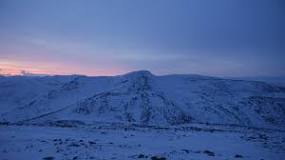 Snow Cover Nears Record Low Across Northern Hemisphere. The Northern Hemisphere had a near-record low snow cover in June, especially in western Canada and Alaska, and the drier landscape is likely feeding widespread wildfires this season, scientists said. The snow cover was the second-lowest for June in the 48-year record, said a monthly report issued Wednesday by the National Snow and Ice Data Center in Boulder, Colorado. Alaska Dispatch News Snow Cover Nears Record Low Across Northern Hemisphere. The Northern Hemisphere had a near-record low snow cover in June, especially in western Canada and Alaska, and the drier landscape is likely feeding widespread wildfires this season, scientists said. The snow cover was the second-lowest for June in the 48-year record, said a monthly report issued Wednesday by the National Snow and Ice Data Center in Boulder, Colorado. Alaska Dispatch News
Victoria Island Impact Crater Lures Scientists, Astronauts. Scientists are hoping a detailed investigation of the Tunnunik impact crater - a 45-kilometre-wide rock-covered depression on the High Arctic's Victoria Island - can help explain how the planetary-like landscape was formed. "We know it's somewhere between 350 million years old and maybe 130 million years old," says Gordon Osinski, a planetary geologist with Western University and a leader of the expedition. "That's a huge chunk of time." The crater was first discovered in 2010 by geologists Keith Dewing and Brian Pratt. CBC News
 Approval Requested for Repairs to Icebreaker in Shell's Arctic Quest. Shell is making plans to repair an icebreaker that plays a pivotal role in its Arctic drilling program, even as clues emerged Thursday about what might have torn a meter-long gash in the vessel. Arctia Offshore, the owner of the Shell-contracted MSV Fennica, has asked the U.S. Coast Guard to approve plans for sealing the hole in the ship's hull. As of late Thursday, a final ruling had not been made. But there was new information on what might have gouged the vessel as it traveled away from the Alaska port of Dutch Harbor on July 3. Houston Chronicle Approval Requested for Repairs to Icebreaker in Shell's Arctic Quest. Shell is making plans to repair an icebreaker that plays a pivotal role in its Arctic drilling program, even as clues emerged Thursday about what might have torn a meter-long gash in the vessel. Arctia Offshore, the owner of the Shell-contracted MSV Fennica, has asked the U.S. Coast Guard to approve plans for sealing the hole in the ship's hull. As of late Thursday, a final ruling had not been made. But there was new information on what might have gouged the vessel as it traveled away from the Alaska port of Dutch Harbor on July 3. Houston Chronicle
Bumblebee Habitat Shrinking Due to Climate Change, Plus 12 Other Animals at Risk. We know the planet is getting warmer - 2014 was the hottest year on record, in the 135 we've been keeping records - and bees certainly aren't the only animals feeling the heat. Here's a look at 12 more species already in the line of fire and how they're coping. Animals include: (1) polar bear, (2) muskox, (5) Canada Lynx, (10) chinook salmon, (11) seals, and (12) narwhal. The Weather Channel
|
|
Legislative Action
No Arctic legislation was formally considered yesterday.
|
|
Future Events
Begins in 4 days...and registration is now at capacity...contact Pablo (pablo.clemente-colon@noaa.gov) if you REALLY want to attend.
He'll see what he can do...
6th Symposium on the Impacts of an Ice-Diminishing Arctic on Naval and Maritime Operations, July 14-16, 2015 (Washington, DC, USA). This biennial symposium, co-hosted by the US National Ice Center and the US Arctic Research Commission, brings together nationally and internationally recognized experts on Arctic observations, climate change, and maritime operations. Past symposia expanded the discussion to include the impact of an ice-diminishing arctic on other nations and their maritime operations including commercial transportation, oil and gas exploration and exploitation, fisheries, and oceanographic research. The continuing reduction in Arctic sea ice extent remains a central focus.
Confirmed marquee speakers include Congressional leaders (Rep. Don Young, Senator Lisa Murkowski), the USCG Commandant (ADM Zukunft), State Dept. Arctic Rep. (ADM Robert Papp USCG (Ret.)), US Navy's Chief of Naval Research (RADM Winter), and NOAA's Chief Scientist (Dr. Rick Spinrad).
Other speakers will represent the State of Alaska, academic research, institutions private sector (oil and gas, maritime insurance), and other federal entities.
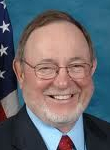  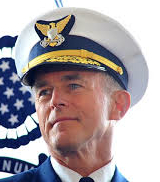
 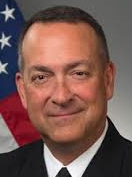 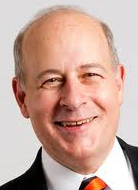
The Alaska Arctic: A Summit on Shipping and Ports, August 23-25, 2015 (Anchorage, Alaska, USA). Alice Rogoff will host the summit along with the state of Alaska and various partners, including President Ólafur Ragnar Grímsson of Iceland and Mead Treadwell, president of Pt Capital and former Alaska lieutenant governor. The purpose of the meeting is to build partnerships to develop safe and reliable shipping through the Alaskan Arctic. These partnerships will be necessary to finance needed ports of refuge, search and rescue equipment, transshipment facilities and icebreakers. At the same time, the interests of local and indigenous residents must be an integral part of any development planning.
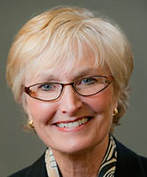
104th Meeting of the USARC, August 25-26, 2015 (Nome, AK, USA).
USARC (Fran Ulmer, Chair) will hold its next meeting in Nome, where Ulmer will present the 2015-2017 Goals Report. The Commission will tour the new, light icebreaker vessel R/V Sikuliaq in the Nome port, and will hear from local researchers on topics such as health, social science, marine science, marine mammal co-management research, federal research, renewable energy, climate shipping, port development, and water and sanitation, among other topics. A full agenda will be forthcoming.
Eighth Polar Law Symposium Alaska 2015, September 23-26, 2015 (Fairbanks and Anchorage, Alaska , USA). The Eighth Polar Law Symposium is co-hosted by Alaska Pacific University (APU), the University of Alaska Fairbanks, the University of Alaska Anchorage (through its Justice Center and its Institute of Social and Economic Research), the University of Washington School of Law, and Vermont Law School, in cooperation with the Arctic Law Section of the Alaska Bar Association. The symposium will be held on both campuses of the University of Alaska. The 2015 theme is: The Science, Scholarship, and Practice of Polar Law: Strengthening Arctic Peoples and Places.
2015 Arctic Energy Summit, September 28-30, 2015 (Fairbanks, Alaska, USA). The Institute of the North's 2015 Arctic Energy Summit builds on our legacy efforts to address energy as a fundamental element of the sustainable development of the Arctic as a lasting frontier.Central to this concept is a focus on providing pathways for affordable energy development in the Arctic and for Arctic communities.
2015 Arctic Circle Assembly, October 16-18, 2015 (Reykjavik, Iceland).
The Arctic Circle is the largest global gathering on the Arctic. It is attended by heads of state and governments, ministers, members of parliament, officials, experts, scientists, entrepreneurs, business leaders, indigenous representatives, environmentalists, students, activists, and others from the growing international community of partners and participants interested in the future of the Arctic. The Arctic Circle highlights issues and concerns, programs, policies and projects; it provides platforms for dynamic dialogue and constructive cooperation. While the plenary sessions are the responsibility of the Arctic Circle, the breakout sessions are organized by various participating partners in their own name and with full authority over the agenda and the choice of speakers.
The Polar Oceans and Global Climate Change, November 3-6, 2015 (La Jolla, California USA). The American Polar Society will host this Symposium at Scripps Institution of Oceanography. A flyer with a partial list of presenters is available on the Society's website (americanpolar.org) and from the Society's Membership Chairman by email.
Forum for Arctic Modeling and Observational Synthesis Meeting, November 3-6, 2015 (Cape Cod, MA, USA). On November 3rd, the 2015 School for young scientists will consider "Regional Oceanography of the Arctic marginal seas" with lectures covering major features of atmospheric, sea ice and oceanographic regimes of the: Bering, Chukchi, Beaufort, East-Siberian, Laptev Sea, Kara, Barents and Nordic seas. On November 4-6, the meeting portion will summarize project accomplishments for the last 3 years of activities and will focus on the formulation of scientific questions and directions for FAMOS future research (2016-2019) to: (a) improve Arctic modeling, employing very high resolution models; (b) develop and test new arctic monitoring/observing systems and (c) improve predictions of Arctic environmental parameters with reduced uncertainties.
Due North: Next Generation Arctic Research & Leadership, November 5-8, 2015 (Calgary, Alberta, Canada). The Association of Canadian Universities for Northern Studies (ACUNS) will convene an interdisciplinary conference of early career scientists working on Arctic issues. Topics will include: Arctic Communities, Arctic Sustainable Development, Arctic Wildlife, Ecosystem and Biodiversity, Arctic Food Security, Arctic Landscapes, Climate Change and Adaptation, Disaster Risk Management, Policy, Politics and Leadership, Arctic Environment (Data and Techniques), Arctic Resources, and Future of Arctic.
Arctic Observing Open Science Meeting, November 17-19, 2015 (Seattle, Washington). The Arctic Observing Open Science Meeting will be 2.5 days and held at the Hyatt at Olive 8 in Seattle, Washington. The conference will bring together individuals and teams involved in the collection, processing, analysis, and use of observations in the Arctic - from academia, agencies, industry, and other organizations. The meeting will be convened as a combination of plenary talks, parallel science sessions, and a poster session. The agenda and registration information will be forthcoming.
In the Spirit of the Rovaniemi Process 2015, November 24-26, 2015 (Rovaniemi, Lapland, Finland). When the Arctic Environmental Protection Strategy, the so-called Rovaniemi Process, was adopted in 1991, it aimed at overcoming divisions and turning the zone of Cold War military tensions into a region of peace and co-operation. In this joint effort focusing on the protection of environment, and later, sustainable development, the Arctic states supported by indigenous organizations laid grounds for institutionalized collaboration and the emergence of Arctic regional identity. The second international conference will bring together decision-makers, scholars, artists, designers and students to address these questions and discuss the Arctic in global, regional and local perspectives.
|
|

  
4350 N. Fairfax Drive, Suite 510
Arlington, VA 22203, USA
External links in this publication, and on the USARC's World Wide Web site ( www.arctic.gov) do not constitute endorsement by the US Arctic Research Commission of external Web sites or the information, products or services contained therein. For other than authorized activities, the USARC does not exercise any editorial control over the information you may find at these locations. These links are provided consistent with the stated purpose of this newsletter and the USARC Web site.
|
|
|
|
|
|
|
|
|